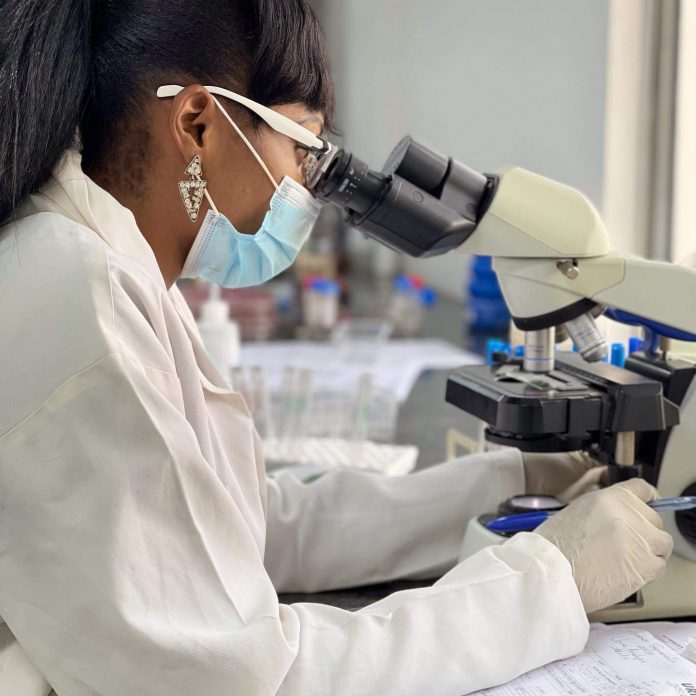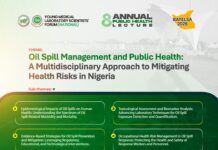Re: Nigerian Resident Doctors Oppose NUC’s Decision To Award ‘Doctor’ Titles To Pharmacists, Physiotherapists, Optometrists.
The word “doctor” is derived from the Latin word “docere” (a Latin verb that means “to teach or a scholar”). In other words, the word “doctor” actually refers to a teacher or a scholar (one who is learned or skilled). An article published in 2018 in the Canadian Medical Association Journal by Professors Abdul-Fattah A. Asfour and James P. Winter [2018;190(21):E660], explains that historically, the title “doctor” was invented in the Middle Ages to describe eminent scholars, dating back to the 1300s, with such people enjoying a lot of respect and prestige. Other authorities have also offered a similar meaning to that word. For example, the Chambers Twentieth Century Dictionary defines “doctor” as follows: ‘teacher (arch.) originally implying competency to teach’.
The Butterworth’s medical dictionary puts the teaching definition before the medical definition. Simply put, the only real doctors are the PhD holders; no first-degree holder (such as MBBS, BSc, BDS, etc.) should ordinarily use that title. After all, while PhD means “Doctor of Philosophy”, no such doctorate connotation is present in MBBS (Bachelor of Medicine, Bachelor of Surgery) or BDS (Bachelor of Dental Surgery)- these two are only but bachelor’s degrees.
However, in contemporary times, that title “Dr” has largely been understood to mean someone who provides medical care and advice. There was no problem when physicians resolved to use the title “Dr.”, even though it was originally reserved for university scholars of the time. Till date, PhD holders have not instituted any trouble against physicians for using the title “Dr.” after obtaining their bachelor’s degree. One could say that the university scholars allowed it because they knew that the use of the title would not make them inferior to the physicians, or make the physicians to suddenly attain the high level of scholarship of PhD holders overnight. The fact that the title does not originally belong to physicians probably explains why surgeons in the UK prefer to be addressed as “Mr.”, even though they had to acquire the medical degree before proceeding to specialize in surgery. In fact, the title ‘Doctor’ should be considered a courtesy title to members of the medical profession, because only those who have achieved certain academic qualifications are allowed to use such a title by right, namely an MD, PhD, DSc, DPhil, DDS, DLitt, and so on.
On their part, physicians have always maintained a strong opposition to the use the title “Dr” by other health professionals, but have no problems with dentists, and even veterinarians using it. The basis for their strong opposition is that it will lead to confusion among the patients as to who the “real doctor” is in the hospital. This opposition is not only among Nigerian physicians, but also observed in some advanced climes. For example, Professor Gary Gaddis in his journal article titled “Nurses With a Doctorate in Nursing Practice (DNP) Should Not Call Themselves “Doctor” in a Clinical Setting”, published in Missouri Medicine (2022;119(4):314–320), concluded that “Only physicians should call themselves “doctor” in a clinical setting where clinical care is being provided to trusting patients”. Professor Gaddis did not explain why there has never been any confusion in minds of the patients even though Dentists and physicians in the same hospital use the title. He did not also make reference to the existence of any confusion that may have arisen from the use of that title by Pharmacists, Optometrists and Physiotherapists over the years. He did not also mention the confusion that may have been caused by the use of that title by Osteopaths in USA, and natural medicine practitioners (Naturopathic physicians obtain doctor of Naturopathy-ND, Homeopathic physicians obtain doctor of Homeopathy (MD(Hom.) while Chiropractors obtain doctor of Chiropractor-DC) as their first degrees. One really wonders why Nurses who labour to acquire the doctor of Nursing Practice (DNP) should not be allowed to use that title.
Sometime ago in Nigeria, the management of a certain public hospital in South-West Nigeria, embarrassed itself by issuing a memo stopping staff who have acquired PhD from using the title “Dr.” within the hospital environment. It is that same pettiness that the NARD has come to display to the world in 2025. It will be interesting to know how the patients in their hospitals are not confused by the use of that title by the physicians and dentists, yet confusion will arise when other health professionals use it! How does an individual who comes to seek healthcare distinguish between the physicians and the dentists? Indeed, any sane mind will be taken aback by the puerile publication of NARD on this matter. It is very surprising that NARD does not know about the existence of the Doctor of Pharmacy (PharmD), Doctor of Optometry (OD) and Doctor of Physical Therapy (DPT) in some other countries. That means that they are also not likely to be aware of the existence of Doctor of Clinical Laboratory Science (DCLS) in the USA. Seeing that they do not know that these programmes exist, one really wonders what they mean when they make reference to their so-called “international best practices”.
Another reason that NARD gave for opposing the use of “Dr.” by other health professionals is that it is a means to seeking equality with the physicians. Unfortunately, they did not explain how the acquisition of these degrees will make licensed pharmacists, physiotherapists or optometrists to automatically acquire the skills and competence that make one to a become physician. NARD will do well to offer the explanation to the general public, how these other health professionals will leave their respective Departments to start performing duties of physicians in any of the Departments that physicians are supposed to function. If they equality NARD refers to is in terms of salary payment, then they should know that even if their members are placed on the topmost level of their CONMESS salary chart, the low spending power of our currency will still render them economically powerless, just like every other health professional. So, it makes more sense to seek multi-professional collaboration to save our ailing healthcare system and improve the overall welfare of all healthcare professionals.
Read also: HARNESSING THE POTENTIALS OF SCIENCE LABORATORY TECHNOLOGY (SLT) IN NIGERIA
On the other hand, there are very troubling issues that NARD should concern itself with. They should start by explaining to the world how their members become professors without PhD. Yet, such medical professors who do not possess PhD seek equality with professors in other disciplines who, despite being holders of Fellowship Diplomas in their areas of specialization, laboured to acquire PhD. Would they say it is also part of their often-mouthed international best practices?
They should also be bothered that the Nigerian health system still ranks poorly among other health systems globally; 51 out of 53 in Africa, and 189 out 191 in the world. This is a shameful reality that should concern the NARD and push them to call on the government of Nigeria to do the needful to revive the health system. This penchant for denigration and belittling of other health professionals, does not add value to our health system, and should cease forthwith.
Instead of this unnecessary fight against the aspirations of other health professionals, NARD should rather be concerned about the obvious mismanagement of the health system by their colleagues. The rot in our health system, which started in 1985, with the enactment of Decree 10 of 1985 by the Gen. Babangida administration which had late Prof. Olukoye Ransom-Kuti as the Minister for Health, has continued unabated till date. Yet, NARD seems to not know what is going on probably because some of them hope to benefit from the same faulty system. They should be concerned about the high rate of medical negligence being committed by Nigerian physicians, which has led to loss of lives of Nigerian citizens. The NARD should also take steps to address the abuse of rights of patients that their members and colleagues perpetrate in Nigeria. It is surprising that NARD is silent on the deliberate training of quacks by their colleagues who are supposed to uphold professional ethics; some private and public hospitals in Nigeria have become centres for training of quacks, such as training of “auxiliary nurses”. They also use of unqualified personnel (such as graduates Science Laboratory Technology, Microbiology, Biochemistry, etc.) in running laboratory tests to the detriment of the health and well-being of Nigerians, and so on.
Read Also: Views of SLT Graduates who later Studied Medical Lab Science about Program
The world is witnessing advancements in technology, and these affect healthcare practice in no small way. It is important that healthcare disciplines also update their curriculum, knowledge and skills so that they can possess the required competence and dexterity to render the kind of professional services that meet the demands of the contemporary society. The opposition of NARD to this noble pursuit is rather unpatriotic and uncharitable, and should be halted already.
Dr. Kemzi Elechi-Amadi (BMLS, MSc, PhD, HMD, D.Th.) writes from Port Harcourt, Nigeria.
Disclaimer
The views expressed in the article above are entirely those of the author and does not in anyway reflect the views of the blog.
Follow us on our socials
- Twitter 👉 https://www.twitter.com/zackmensah
- Facebook page 👉 https://www.facebook.com/thenigerianmedlabscientist
- YouTube Channel👉 https://youtube.com/@Nigerianmedlabscientist
- WhatsApp Channel 👉 Click here
Thank you for your support.
















